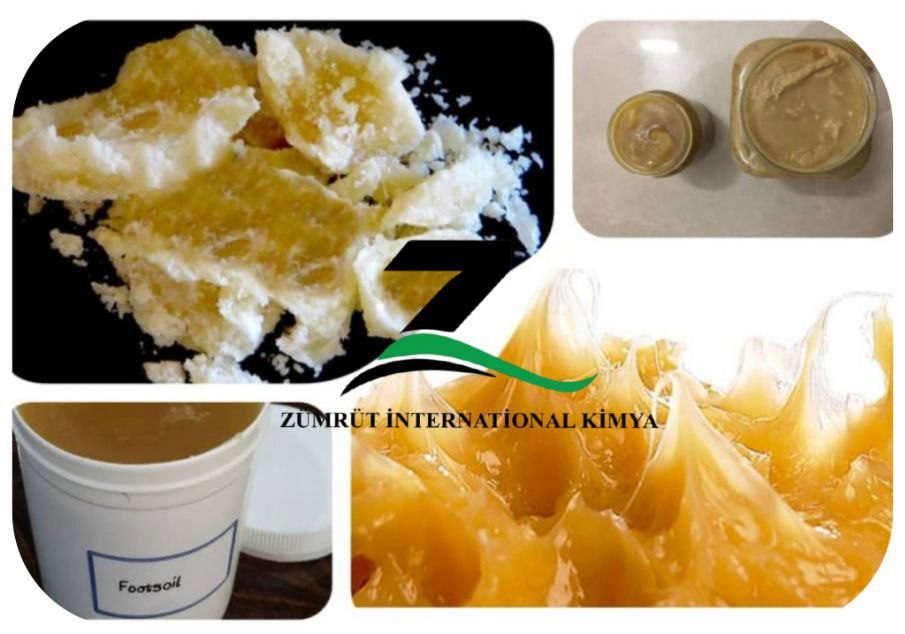
Description of Residue Wax
Residue wax, also known as foot oil or slack wax, is a byproduct of the petroleum refining process. It is made up of hydrocarbons derived from slack wax after it has been dewaxed.
Crude oil is refined using a variety of techniques to remove impurities such as waxes. Wax removal includes chilling the crude oil to a temperature that allows the wax to crystallize and be filtered out. After the wax is removed, the oil is further processed to produce other products such as gasoline, diesel, and lubricating oils.
Slack wax is the wax taken from crude oil, which is primarily made up of paraffin wax and microcrystalline waxes, as well as other contaminants.
The slack wax is then processed to remove the impurities, leaving behind a residue wax with a higher melting point than the original slack wax.
Residue wax is commonly used in the manufacture of candles, crayons, polishes, and other products that require a high melting point wax. It is also used as a lubricant in various industries, including rubber manufacturing, paper production, and textile processing.
Foot oil is solid at room temperature and starts to melt at temperatures above 40-60 degrees Celsius. Its typical flash point is around 250°C and initial boiling point above 280°C.
Not flammable according to UN GHS criteria, but will burn. It is neither self-reactive nor self-heating and does not undergo exothermic decomposition when heated. Due to possible reactions with oxidizing substances, foot oil ,should be stored separately.
Application
Foots oil is mainly used in shoe making, plastic making, polishing, chipboard industries, and generally in wood industries. This product is used in wood industries, especially chipboards, to waterproof and increase the length. In the match manufacturing industry. it is also used as an auxiliary material to improve the ignition of matches and the durability of its burning time.
Residue Wax Packing
Packing of Foots Oil is in steel drums new or used to avoid any leakage during transportation. ISO tank and flexi tank are not used for foots oil because it is oily enough to be unloaded without heating it and again it is not economic to use this luxury packing for residue wax.
Analysis of Residue Wax
| Property | Test Method | Unit | Result |
|---|---|---|---|
| Melting point | ASTM D87 | °C | 60-80 |
| Color | ASTM D1500 | ASTM | <1 |
| Penetration at 25°C | ASTM D1321 | dmm | 10-30 |
| Density at 25°C | ASTM D1298 | kg/m³ | 900-950 |
| Congealing point | ASTM D938 | °C | 50-70 |
| Acid value | ASTM D664 | mg KOH/g | <1 |
| Flash point | ASTM D92 | °C | >200 |
| Needle penetration | ASTM D1321 | dmm | 5-15 |

